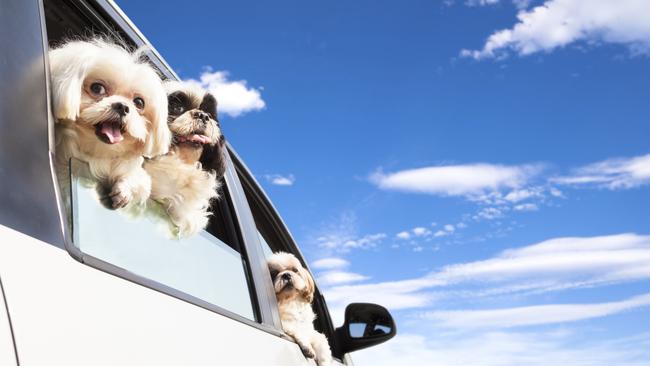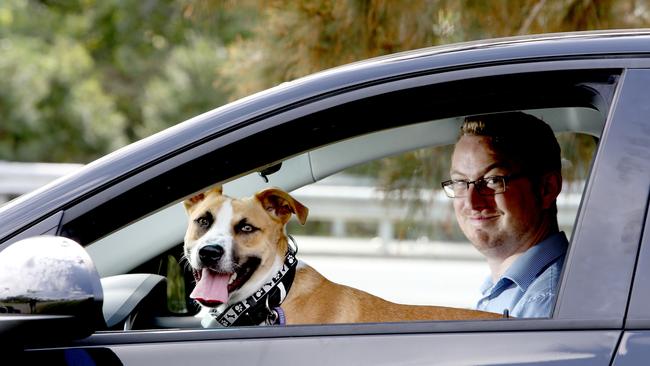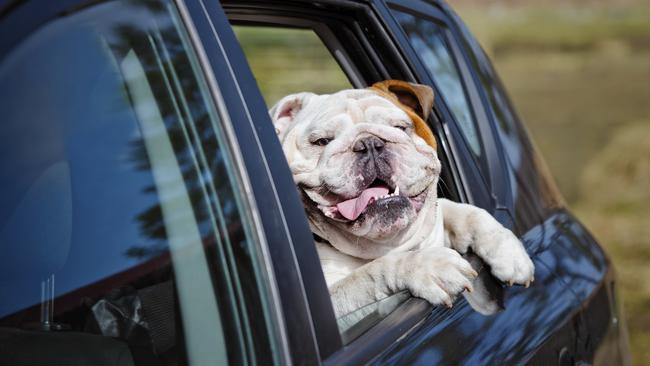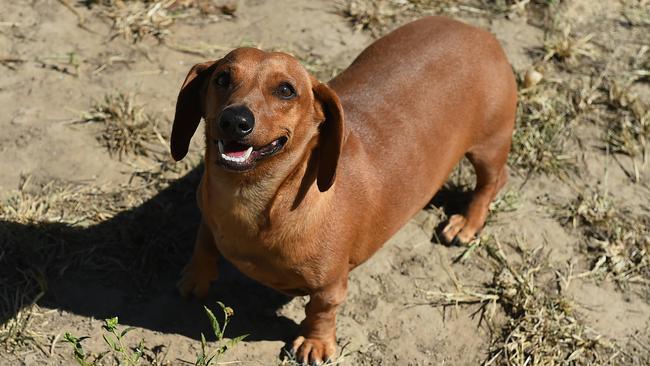Dr Anne Fawcett’s top tips for a safe road trip with your dog
TAKING the family dog on a road trip? Vet Dr Anne Fawcett has some things to keep in mind if you’re heading up or down the coast with your fur-baby this holiday season.

Wentworth Courier
Don't miss out on the headlines from Wentworth Courier. Followed categories will be added to My News.
SOME dogs really love road trips with their human family. Just as we need to “stop, revive, survive” on road trips, our canine family members need nature breaks during long drives too.
It is crucial that you choose the stop carefully. Snakes are particularly active at this time of year and particularly enjoy basking by the roadside.
I know of two people who lost their dogs to snake bites sustained when they stopped to let their dog out for a pee.
Choose a spot that is clear of shrubs and bushes, and check carefully before opening the car door.

If your dog is unfortunate enough to be bitten by a snake, proceed to the nearest veterinary hospital immediately. Snake bite can be successfully treated, but earlier intervention is more effective.
If you are taking your dog on a roadie, make sure they are secure in the car, there is plenty of water available, and that your dog is up to date with tick prevention.
It’s always helpful to find out where the closest veterinary clinics are to where you’re staying and what their opening hours and after-hours arrangements are.
Hopefully you won’t need them, but in the event that you do, you will be well prepared.

Signs of tick poisoning
■ a change in bark or meow
■ increased or laboured breathing
■ coughing
■ excessive salivation
■ vomiting or regurgitation
■ weakness in the hind legs, which typically progresses to involve the forelimbs also
■ reluctance to get up or walk.
Because the ability to breathe and swallow are affected, some animals will inhale saliva or food (aspirate) resulting in life-threatening pneumonia.

If you find a tick on your pet contact your vet immediately
The toxin produced by paralysis ticks is very potent. Even when the tick is removed, most animals get worse before they get better — this is because the toxin already in the animal’s body continues to circulate and attach to nerves for a period of time.
It is important to seek veterinary attention to determine whether your pet needs tick anti-toxin. Until then, there are some important steps you can take to reduce the risk of complications:
■ Keep your pet calm, quiet and cool. Excitement, exercise and overheating can exacerbate illness associated with tick paralysis
■ Remove food and water. Your pet’s ability to swallow may be compromised, putting your pet at risk of aspiration pneumonia
■ Search for other ticks on your pet
Other tips to keep your dog safe
■
Make sure your dog is microchipped and that your contact details are up to date and recorded on the microchip register. Also attach an ID tag with your contact details on it to your dog’s collar.
■ Check the laws that apply to transporting dogs by road in the relevant states. Check the state Road Traffic Authority (or equivalent) Road Rules.
■ Make sure that your dog is healthy enough to travel and that all of their vaccinations, worming and flea treatment is up to date before setting off. If your pet takes any prescription medication make sure that you have enough to see you through the holiday. Talk to your vet for advice including paralysis tick prevention.
■ Before you leave for your trip you will need to ensure your dog will be comfortable and safe during the trip.
■ Vehicle restraints for dogs are widely available and include restraints that either attach to existing seat belts or have buckles that clip directly into the seat belt. Generally, restraints may be attached to the dog’s collar or harness. Some groups advocate the use of pet transport containers or crates (appropriately secured within the car). Transport containers should enable the animal to lie down comfortably in a natural position, stand and sit erect, turn around and stretch with clearance.
■ It is a good idea to make sure that your dog is used to travelling by car before you set off.
■ Never leave your dog unattended in a car. Dogs can die very quickly from heat stress, even in mild weather.
■ Remember to stop for plenty of toilet breaks during your road trip to avoid toileting accidents in the car and time for on-lead exercise outside of the vehicle, in a safe and secure area. Even the most well-trained dog can become exuberant and unpredictable in a new, exciting environment. Keep your dog on a lead when in an unfamiliar environment so that they are secure if they take fright at any unfamiliar sights or sounds.
Things you should pack for your dog are:
■ Your pet’s regular food and treats. Don’t forget a can opener if your dog eats tinned food.
■ Bedding and/or a travel crate to sleep in
■ Food and water bowls. Always carry enough bottles of fresh water in case you can’t find a tap
■ Collar/harness and lead
■ Your dog’s favourite toy(s)
■ Grooming equipment including a towel in case your dog gets wet
■ a ‘pooper scooper’ and plastic bags to clean up after your dog
■ any required medications and a first aid kit
Dr Anne Fawcett is a lecturer in veterinary science at the University of Sydney and a vet with Sydney Animal Hospitals Inner West.
Read her blog: smallanimaltalk.com


